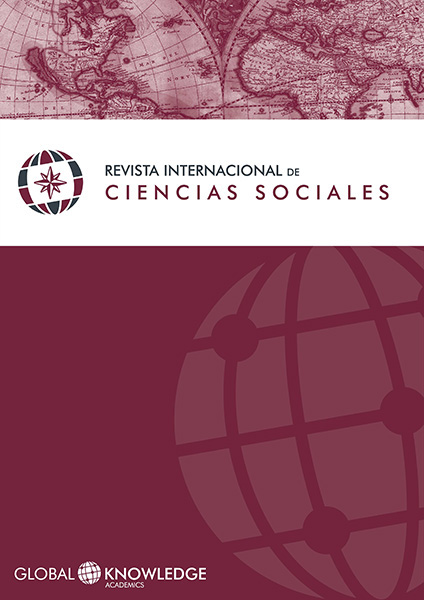Sociological Perspective and Cultural Dimension in the Research about the Youth in a Marginal Urban Context
DOI:
https://doi.org/10.37467/gka-revsocial.v4.790Keywords:
Young People as Subjects, Social Experience, OthernessAbstract
How can we approach the process of construction of young men and women as subjects in the case of a group of high school students, who, in some cases, come from the families of maya origin and are inhabitants of a marginalized urban area in the southeast of Mexico? In this paper I argue that their way of being, relationship with structures, future projects, and notions of “good life” become intelligible through an approach that puts into dialogue the concepts of social experience (Dubet, 2011) and otherness. The first one is a valuable tool that allows to discover a particular dialectic of integrationsubjectivation, which characterizes the relationship of these young people with social institutions and actors. The second one locates the students as constructors of a symbolic universe, where different cultural elements, among them those originated in the family and in school, interact. The representation of a young subject that I construct differs from the stereotypes – usually negative and homogeneous– that are used to describe the urban area in question; it also allows to understand the necessities and aspirations of these individuals according to their own notions of good life, in which the individual and the communal aspects are merged.
Downloads
Global Statistics ℹ️
|
495
Views
|
237
Downloads
|
|
732
Total
|
|
References
Boivin, M., Rosato, A. y Arribas, V. (2004). Constructores de otredad. Una introducción a la antropología social y cultural. Buenos Aires, Argentina: Antropofagia.
Bonfil, G. (1982). De culturas populares y políticas culturales. En G. Bonfil et al. , Culturas populares y política cultural (pp. 9-22). México D.F., México: MNCP-SEP.
Dubet, F. (2011). La experiencia sociológica . Barcelona, España: Paidós.
Giménez, G. (1987). La cultura popular: problemática y líneas de investigación. Estudios sobre las Culturas Contemporáneas, I(3), 71-96.
González, A. (1988). Antropología filosófica: del “subjetum” al sujeto . Barcelona, España: Montesinos Editor, S.A.
Krotz, E. (1994). Alteridad y pregunta antropológica. Alteridades , 4(8), 5-11.
Krotz, E. (2002). Sociedades, conflictos, cultura y derecho desde una perspectiva antropológica. En E. Krotz (Ed.), Antropología jurídica: perspectivas socioculturales en el estudio del derecho (pp. 13-49). México, D. F., México: UAM-I/Anthropos.
Krotz, E. (2003). El multiverso cultural como laboratorio de vida feliz. Alteridades , 13 (25), 35-44.
León, E. (1997). El magma constitutiva de la historicidad. En E. León y H. Zemelman (Coords.), Subjetividad: umbrales del pensamiento social (pp. 36-72). Barcelona, España: Anthropos/UNAM.
Martuchelli, D. y Singly, F. de (2012). Las sociologías del individuo . Santiago, Chile: LOM Ediciones.
Pérez, M. L. (1999). Aportaciones de Guillermo Bonfil al concepto de lo popular. Nueva Antropología, XVI(55), 89-103.
Quiroz, R., Díaz, N. A. y Mena, A. A. (2009). Juventud y derechos culturales. Una aproximación desde Mérida, Yucatán. En R. Quiroz (Ed.), Comunicación, cultura y sociedad en la Península de Yucatán (pp. 93-117). Mérida, México: UADY.
Reyes, M. de G. (2012). Construcción de la niñez y las identidades infantiles en un contexto de rupturas. Dos colectivos infantiles con ascendiente maya en el Municipio de Mérida. Tesis de doctorado. Universidad Autónoma Metropolitana-Iztapalapa.
Sahlins, M. (2011). La ilusión occidental de la naturaleza humana . México, D. F., México: Fondo de Cultura Económica.
Touraine, A. (2005). Un nuevo paradigma para comprender el mundo de hoy . Barcelona, España: Paidós.
Zemelman, H. (1997). Sujetos y subjetividad en la construcción metodológica. En E. León y H.
Zemelman (Coords.), Subjetividad: umbrales del pensamiento social (pp. 21-35). Barcelona, España: Anthropos/UNAM.
Downloads
Published
How to Cite
Issue
Section
License
Those authors who publish in this journal accept the following terms:
-
Authors retain copyright.
-
Authors transfer to the journal the right of first publication. The journal also owns the publishing rights.
-
All published contents are governed by an Attribution-NoDerivatives 4.0 International License.
Access the informative version and legal text of the license. By virtue of this, third parties are allowed to use what is published as long as they mention the authorship of the work and the first publication in this journal. If you transform the material, you may not distribute the modified work. -
Authors may make other independent and additional contractual arrangements for non-exclusive distribution of the version of the article published in this journal (e.g., inclusion in an institutional repository or publication in a book) as long as they clearly indicate that the work was first published in this journal.
- Authors are allowed and recommended to publish their work on the Internet (for example on institutional and personal websites), following the publication of, and referencing the journal, as this could lead to constructive exchanges and a more extensive and quick circulation of published works (see The Effect of Open Access).













